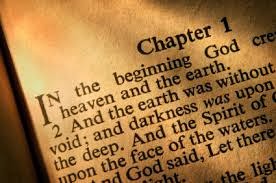Christmas Day
(from several sources but mostly from “The Pagan Origins
of Christian Holidays” by Elisha Israel)
“Hear the word which the Lord speaks to you, O house of
Israel: Thus says the Lord, Do not learn the way of the Gentiles; do not be
dismayed at the signs of heaven, for the Gentiles are dismayed at them. For the
customs of the people are futile: for one cuts a tree from the forest, the work
of the hands of the workman, with the ax. They decorate it with silver and
with gold; they fasten it with nails and hammers so that it will not topple.”
-Jeremiah 10: 1-4 (NKJV)
Christmas is a "Christian" holiday supposedly
in recognition of the birth of Jesus Christ. This is a religious as well as a social/cultural
holiday observed in some fashion by billions of people around the world. During
the Christmas season people send gifts to loved ones, acquaintances, and even
strangers. However, this anniversary was not celebrated by early Christians,
nor is there a decree to celebrate Christ's birth. The date of Christmas as
well as the symbols and figures associated with it predate Christianity.
Why does the "Christian" world celebrate the
birth of Christ on December 25th? A close look at the account of the birth of
Jesus provides insight into the time when Jesus was born. This analysis
suggests that the Messiah could not have been born on December 25th for a
number of reasons. Here are just three:
#1 - Shepherds abiding in the field. Although the exact
date is not provided by any of the Gospel writers, Luke states there were shepherds
abiding in the field. It was not the
custom of the shepherds in this area to abide with their flocks during the
winter.
#2 – Astronomy (not astrology). Using detailed
Astrological mapping software scientists have determined a date closer to early
September.
#3 – The ancient record. One of the first recorded
references to the date of Christ's birth was made in approximately 200 A.D. by
Clement of Alexandria who stated the following: “There are those who have
determined not only the year of our Lord’s birth, but also the day; and they say
that it took place in the 28th year of Augustus, and in the 25th day of (the
Egyptian month) Pachon (May 20 in our calendar) ... Some say that it took place
in the 16th year of Tiberius, on the 25th of Phamenoth [March 21] … Others say
on the 25th of Pharmuthi (April 21) … and still others say that He was born on
the 24th or 25th of Pharmuthi (April 20 or 21).”
How was December 25th chosen as the Savior's birth date? It
helps to understand the significance of this specific date and the time
surrounding the winter solstice for pagans. Also, keep in mind the Roman
Church's willingness to encourage pagan practices and feasts to bring the
heathens into the fold. In 274, Emperor Aurelian made the cult of Sol Invictus
(" Invincible Sun") an official cult in Rome. December 25, the day of
the winter solstice, of the same year Aurelian inaugurated a temple to Sol. Pope
Julius and Catholic leaders declared December 25th as the official birth date
of Christ. In 336 A.D. we find the first recorded celebration of Christmas in a
list of Catholic Bishops.






